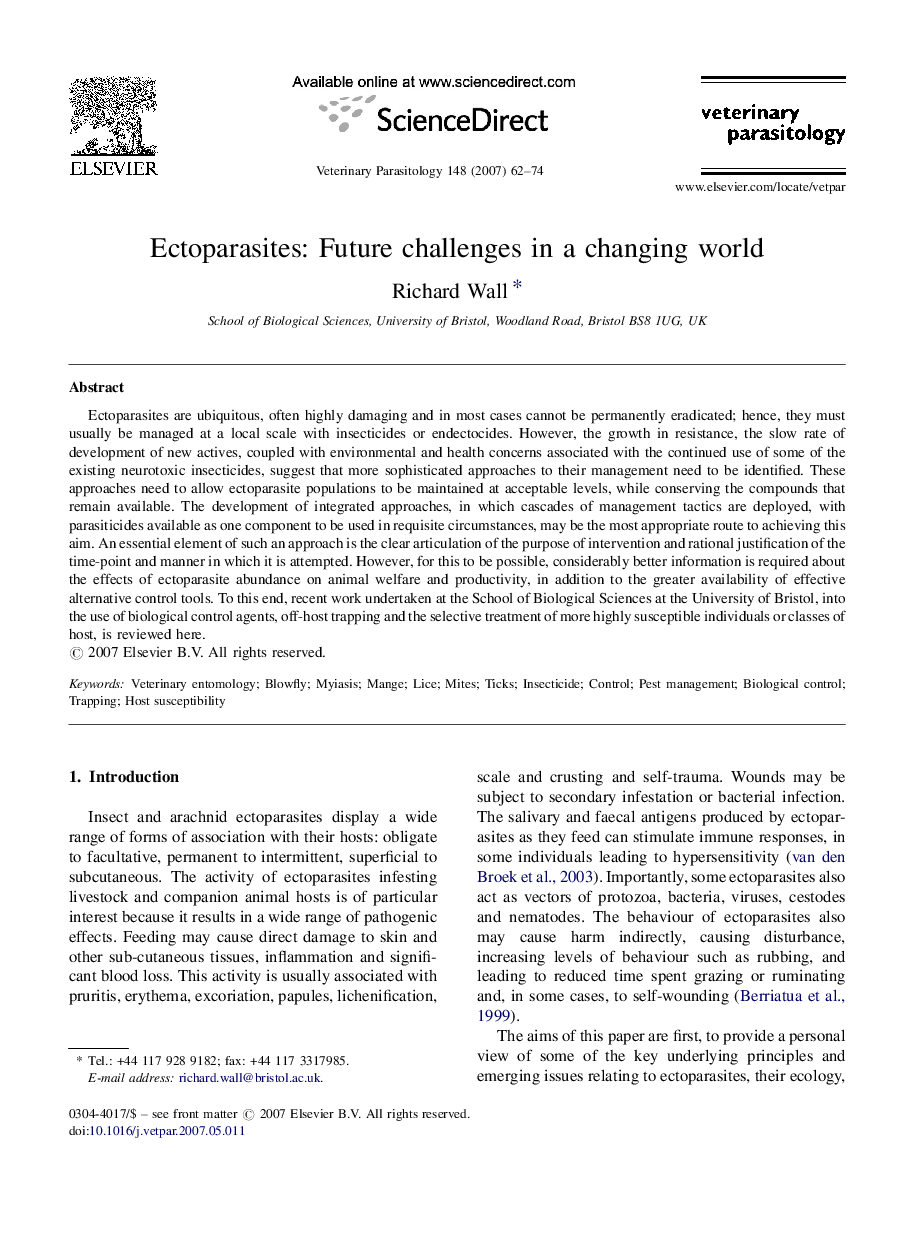| Article ID | Journal | Published Year | Pages | File Type |
|---|---|---|---|---|
| 2471806 | Veterinary Parasitology | 2007 | 13 Pages |
Ectoparasites are ubiquitous, often highly damaging and in most cases cannot be permanently eradicated; hence, they must usually be managed at a local scale with insecticides or endectocides. However, the growth in resistance, the slow rate of development of new actives, coupled with environmental and health concerns associated with the continued use of some of the existing neurotoxic insecticides, suggest that more sophisticated approaches to their management need to be identified. These approaches need to allow ectoparasite populations to be maintained at acceptable levels, while conserving the compounds that remain available. The development of integrated approaches, in which cascades of management tactics are deployed, with parasiticides available as one component to be used in requisite circumstances, may be the most appropriate route to achieving this aim. An essential element of such an approach is the clear articulation of the purpose of intervention and rational justification of the time-point and manner in which it is attempted. However, for this to be possible, considerably better information is required about the effects of ectoparasite abundance on animal welfare and productivity, in addition to the greater availability of effective alternative control tools. To this end, recent work undertaken at the School of Biological Sciences at the University of Bristol, into the use of biological control agents, off-host trapping and the selective treatment of more highly susceptible individuals or classes of host, is reviewed here.
